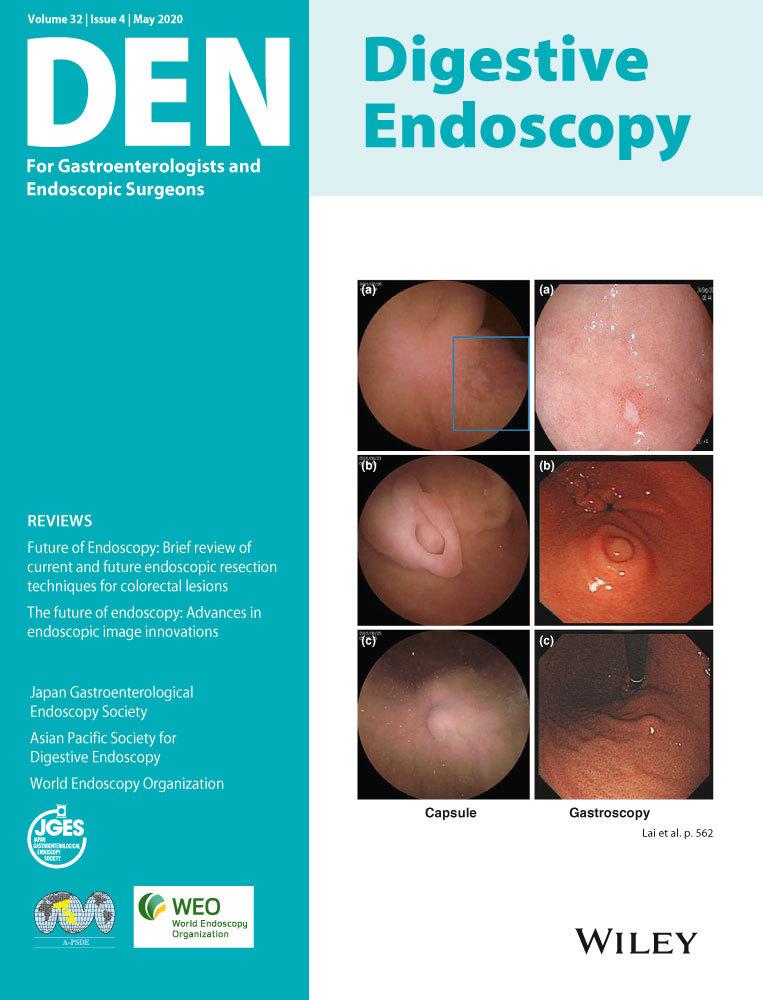Endoscopic sleeve gastroplasty is an effective and safe minimally invasive approach for treatment of obesity: First Indian experience
Abstract
Background and Aim
Endoscopic sleeve gastroplasty (ESG) is gaining acceptance as a non-surgical option for the treatment of obesity. However, its role is still not consolidated for all populations and the ideal indications are yet to be determined. We aimed to study the efficacy and safety of ESG in Indian patients.
Methods
We conducted a single-center retrospective study of obese patients who underwent consecutive ESG at our tertiary care center. Data on weight loss and adverse events at 1, 3, 6, and 12 months were collected and analyzed.
Results
Fifty-three patients underwent ESG from March 2017 to October 2018. Eighty one percent of patients were female (43/53). Mean baseline age and body mass index were 40.54 ± 13.79 years and 34.78 ± 5.20 kg/m2, respectively. Mean duration of procedure was 68.96 ± 11.19 min. Immediate postoperative complications included mainly epigastric pain (45.2%) and nausea (22.6%) but there was no serious adverse event. Average percentage of total weight loss (%TWL) was 8.26%, 11.96%, 14.25%, and 19.94% at 1, 3, 6, and 12 months, respectively. Eighty-eight percent of patients achieved >15% TWL at 12 months. Younger patients (<30 years old) and female patients had greater %TWL at 12 months (P = 0.01 and P = 0.021, respectively). Last 18 procedures were significantly faster than the first 35 cases (P = 0.01).
Conclusions
Endoscopic sleeve gastroplasty is effective and safe at promoting weight loss in the Indian population. Young age and female gender are related to better outcomes.
Conflicts of Interest
Mohit Bhandari And Manoel Galvao Neto are consultants for Apollo Endosurgery; however, Apollo had no role in the design, conduct of study, drafting of the manuscript, nor in the decision to submit for publication. The authors have no commercial associations that might be a conflict of interest in relation to this article. All authors have nothing to disclose.




